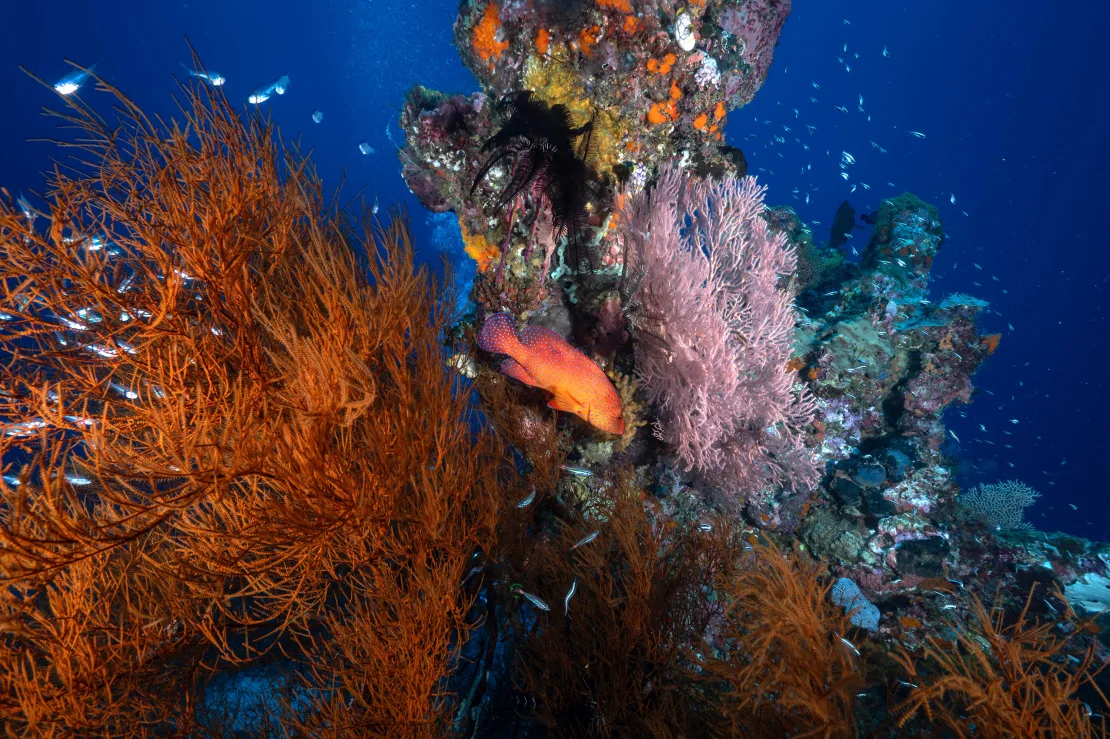The mass bleaching of coral reefs around the world since February 2023 is now the most extensive on record, the National Oceanic and Atmospheric Administration told Reuters this week.
A staggering 77% of the world’s coral reef areas — from the Atlantic to the Pacific to the Indian oceans — have so far been subjected to bleaching-level heat stress, according to satellite data, as climate change fuels record and near-record ocean temperatures across the world.
“This event is still increasing in spatial extent and we’ve broken the previous record by more than 11% in about half the amount of time,” NOAA Coral Reef Watch coordinator Derek Manzello told Reuters. “This could potentially have serious ramifications for the ultimate response of these reefs to these bleaching events.”

The NOAA coral reef authority declared the global bleaching event in April 2024, making it the fourth of its kind since 1998. The previous record from the 2014 to 2017 mass bleaching affected just below 66% of the world’s reef area.
Triggered by heat stress in warm oceans, coral bleaching occurs when corals expel the colourful algae living in their tissues. Without these helpful algae, the corals become pale and are vulnerable to starvation and disease. A bleached coral is not dead, but ocean temperatures need to cool off for any hope of recovery.
At least 14% of the world’s remaining corals were estimated to have died in the previous two global bleaching events.
Though this mass bleaching is already the most widespread, affecting reefs in 74 countries and territories, NOAA has so far stopped short of calling, it the “worst” on record. In coming months and years scientists will conduct underwater assessments of dead corals to help tally up the severity of the damage.
“It seems likely that it is going to be record-breaking in terms of impacts,” Manzello said. “We’ve never had a coral bleaching event this big before.”
In just the last six weeks, bleaching has been confirmed in the waters of Palau, Guam and Israel. Heat stress also remains high in the Caribbean and South China Sea.
In response to the bleaching record, scientists have called a special emergency session on coral reefs to be held at the United Nations Convention on Biological Diversity summit (COP16) in Colombia at the end of the month. World leaders will discuss last-ditch strategies to avert the functional extinction of corals, including further protections and financing.
“The meeting will bring together the global funding community to say we’re still in the fourth bleaching event, these are happening back to back …. What are we going to do about it?” said Emily Darling, who leads the Wildlife Conservation Society’s global coral reef conservation programme.
Scientists had previously projected that coral reefs would cross a tipping point at 1.5 degrees Celsius of global warming, whereby up to 90% of reefs would be lost. The latest record bleaching adds to growing evidence that reefs have already passed a point of no return at just 1.3 degrees of warming.
This would have dire implications for ocean health, subsistence fisheries and tourism. Every year, reefs provide about $2.7 trillion in goods and services, according to a 2020 estimate by the Global Coral Reef Monitoring Network.
The ongoing bleaching has been made worse by El Niño, a natural climate pattern that can temporarily warm some oceans, which ended in May.
Some forecasters are projecting the world could move into a La Niña climate pattern in coming months, which typically brings cooler ocean temperatures that coral scientists hope might give corals a chance to recover.
Yet there is concern that even with a La Niña that might not happen, with 2024 on track to be the world’s warmest year on record. If current ocean temperatures are the new normal, the world may be entering a period “where we’re more or less in a state of chronic global bleaching,” Manzello said.
This article was rewritten by JournosNews.com based on verified reporting from trusted sources. The content has been independently reviewed, fact-checked, and edited for accuracy, neutrality, tone, and global readability in accordance with Google News and AdSense standards.
All opinions, quotes, or statements from contributors, experts, or sourced organizations do not necessarily reflect the views of JournosNews.com. JournosNews.com maintains full editorial independence from any external funders, sponsors, or organizations.
Stay informed with JournosNews.com — your trusted source for verified global reporting and in-depth analysis. Follow us on Google News, BlueSky, and X for real-time updates.














